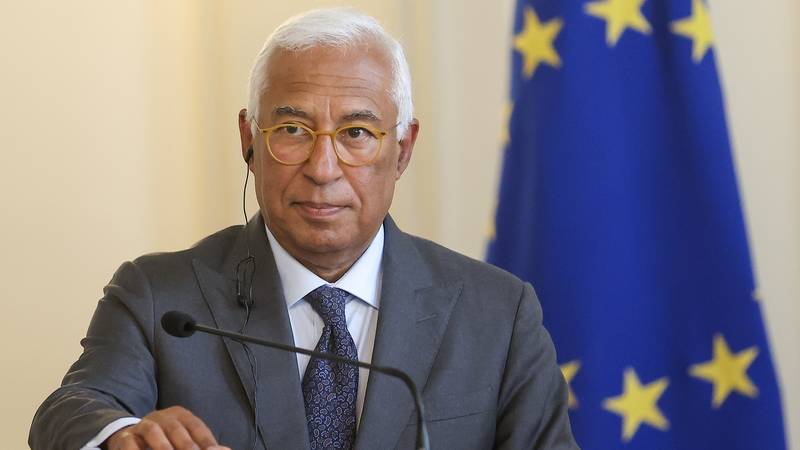How social is the CSV still today?

The author is a member of the CSV and lay judge of the city of Luxembourg.
Guest contributions reflect the respective opinion of their authors, not those of the editorial team. They are not part of regular reporting and theme planning of the « Luxemburger Word ».
Recently, the question has been asked again and again how socially the CSV is. This is an answer from a very personal perspective: What foundations do we do on politics?
In its history, the Chrëschtlech Social CSV has always geared towards social teaching. Far from being a clientele party that is based on the particular interests of individual social groups, she keeps the well -being and cohesion of everyone in mind. This results in an attitude and an orientation.
How Luxembourg’s social and solidarity economy loses their roots
What attitude should guide us? The social teaching clearly says that all people are equally important to us, so our politics should breathe something like appreciation for everyone. Many years ago, an impressive Franciscan Father told me what question became the basic criterion of his life: « Are the poor your friends? » I am far away to meet this claim, but it remains my inspiring basic maxim.
A policy -shaped policy
The Christian social teaching speaks not only of the necessary attitude, but also in terms of content of the four great principles of personality, common good, solidarity and subsidiarity, to which sustainability has been added today. They have to be the basis of our politics and run through all policy areas.
On the one hand, it is also about fighting poverty and a transverse national strategy that has to guarantee a well-balanced balance of wage, tax, labor and social service policy. And on the other hand, these five principles are above all individual departments.
The compensation of different interests, especially the consideration of the needs of the weakest in society, form the basis of a welfare state.
How can the good coexistence of everyone succeed? What social structures does a society need so that everyone can do well into their lives? And how do the social questions in the sustainability triangle keep their importance?
Donald Trump’s betrayal of his voters
These are the fundamental questions with which a popular party committed to the welfare state constantly deals with and to which she has to find answers again and again. Because the compensation of different interests, especially the consideration of the needs of the weakest in society and those of being risked, form the basis of a welfare state.
The dignity of man is always to be observed
The principle of personality is central to the social teaching and the normative focal point from which everyone else is derived: the dignity of man as a person is always to be respected and protected – it is indivisible and untouchable, cannot be negotiated or sold.
The common good principle, on the other hand, has the well -being of the whole community and goes beyond the condition of individual people. Ordering in between is the task of politics. Because this is closely associated with the question of justice, which belongs to Christian -motivated political action and has to be rewit again and again.
Solidarizing also means working for strangers and remembering the common family of humanity.
Whether a society is fair only turns out to be evident when the glasses of the socially excluded, the disadvantaged and socially deviated. This look at the recent measures, such as the tax relief for single parents and tax class 1a as well as the increases in the energy bonus and the rate of inflation for those who need a dignified life.
It is also welcome that different social welfare no longer has to be requested, but the state offers them to the beneficiary. Putor becomes entitled to claim.
How to design a dynamic society?
The third principle is that of solidarity: Because everything is connected to everything, everyone is also responsible for each other. The late Pope Francis also wrote this in the Laudato Sì. This social-ethical principle must never reduce only to your own family or a closed group. Otherwise it loses its quality and degrades to group governorism or nationalism.
Solidarizing also means working for strangers and remembering the common family of humanity – because everyone lives on the same planet earth, dependent and are responsible for each other.
The social wing is less and less visible, is the criticism of the CSV. Photo: Marc Wilwert
The still high expenses for cooperation policy are a sign of the people who have little and should have a share in our prosperity. Last but not least, the subsidiary state is there to promote the person and the smaller units in their own activity without taking their opportunities to help themselves – the offer of help in the sense of « help for self -help ».
And finally, Christian social ethics combines decisions with its long -term consequences with the principle of sustainability: it asks whether today’s prosperity is built at the expense of the social and ecological conditions of other people.
The new electricity price and what consumers have
Do we leave a society and an earth that are worth living in future generations? Do we build our current prosperity at the expense of social and ecological existence conditions of other and future human lives? The debate about the long -term protection of pensions for future generations is a key point of this principle.
The art of just equilibrium
There are many terms to describe this type of politics. Sometimes spoken of a « third way » between the state rush and individuality, sometimes of ordoliberalism, sometimes of social teaching inspired by Christian values. Together these descriptions are the art of equilibrium.
Whether a society is fair only turns out to be judged when the glasses of the disadvantaged glasses are judged.
The politicians who will leave their traces for the benefit of the people for the future are not those who enforce a certain interest or a particular policy area against others. B. forget the climate behind the business interests and vice versa or just want to make your own nation big again.
How the parties can keep up with social change
It is those who have a wide view of being able to consider different crises at the same time and formulating overarching solutions, just those that dominate the art of just balance.








